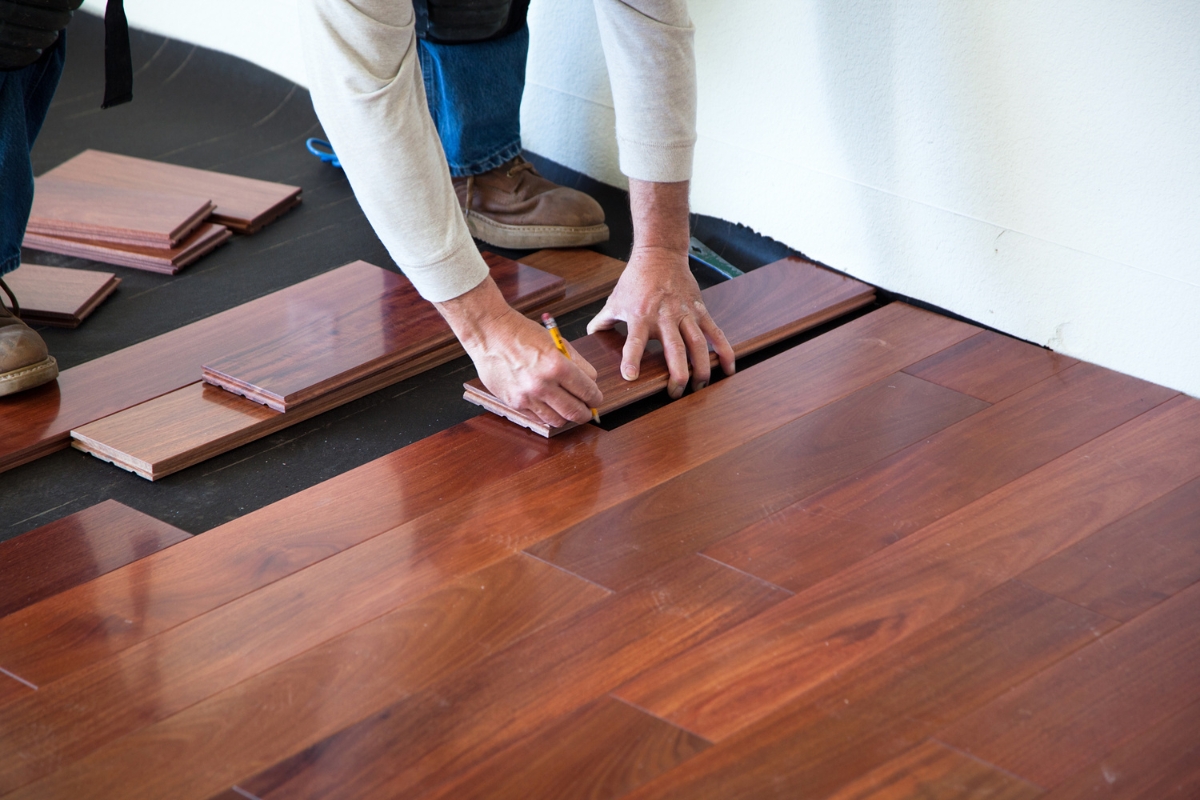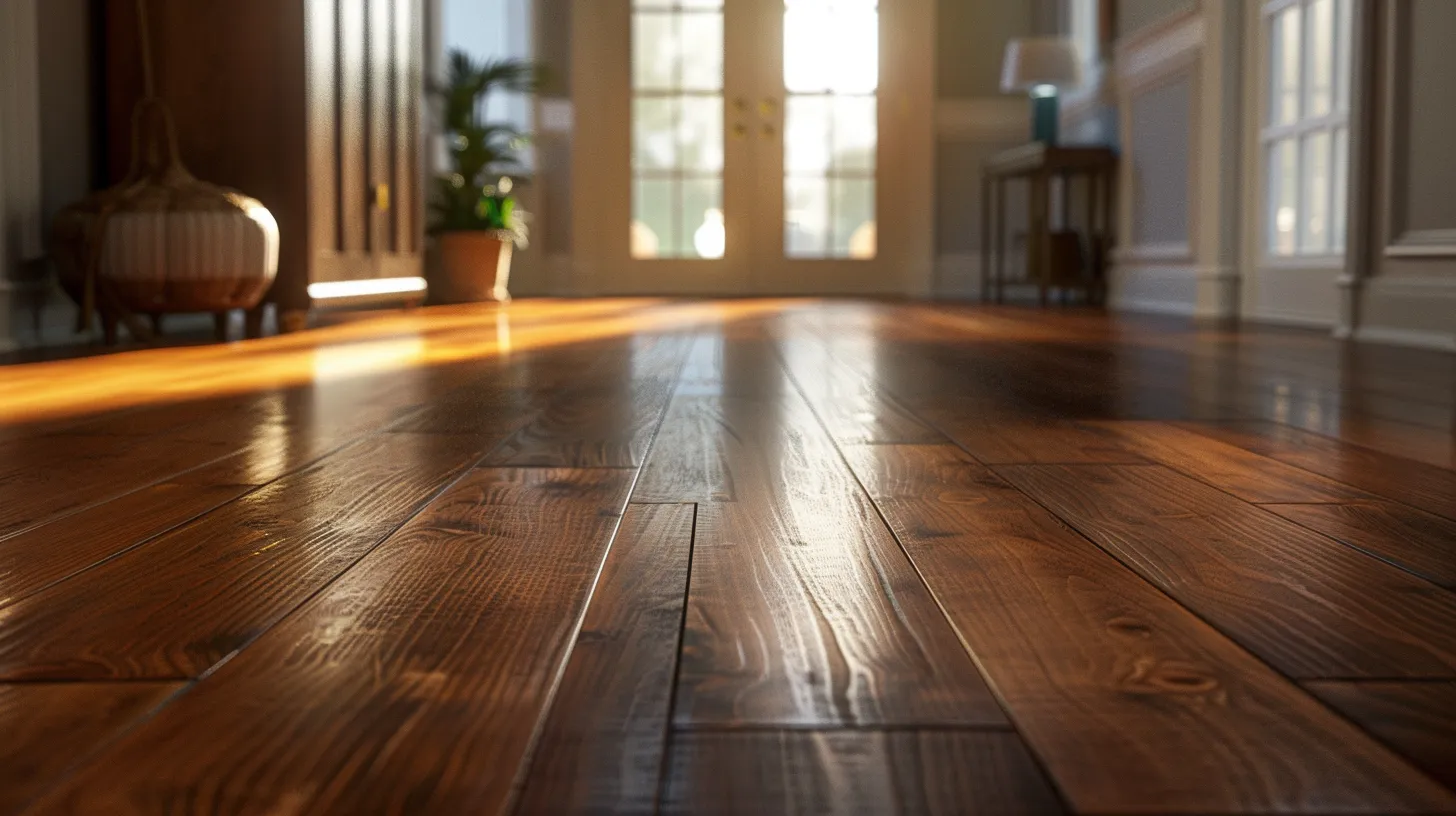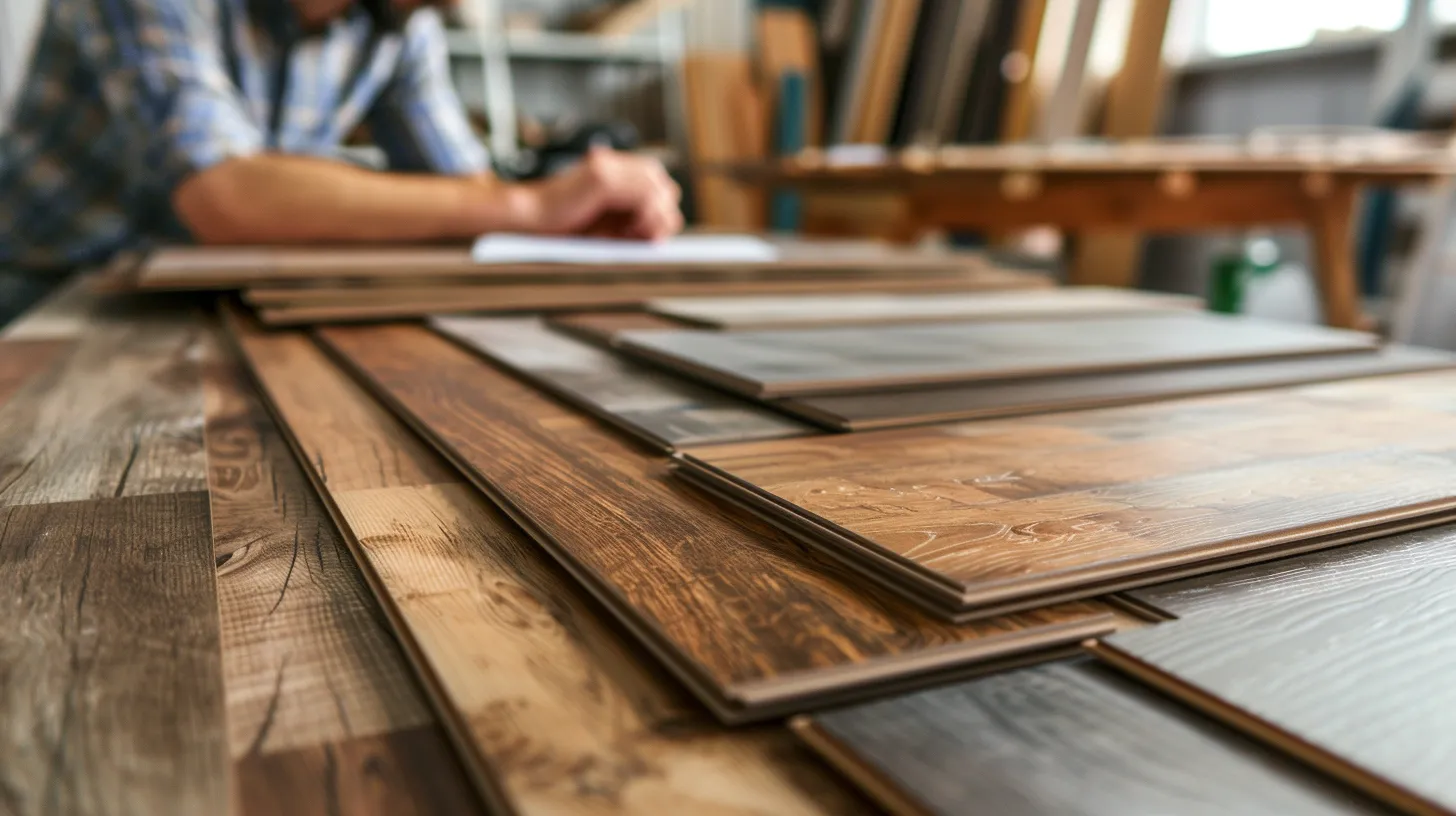If you’ve been considering giving your floors a fresh new look, you’re probably faced with a common dilemma: should you take the DIY route or hire a professional for the installation? It’s a decision that many homeowners find themselves wrestling with, as they weigh the pros and cons of each option.
After all, both DIY and professional flooring installation have their own set of advantages and limitations. But fear not! In this blog post, we’re going to delve deep into this topic and help you make an informed decision that fits your budget and meets your specific needs.
By the end of this blog post, you’ll have a clear understanding of which path aligns with your budget and whether you have the necessary skills to take on the challenge. So, whether you’re a seasoned DIY enthusiast looking for a new project or a homeowner seeking professional guidance, let’s dive into the world of DIY versus professional flooring installation and find the perfect fit for you.
Flooring Face-Off: Is DIY or Professional Flooring Installation the Better Choice?
Pros and Cons of DIY Flooring Installation
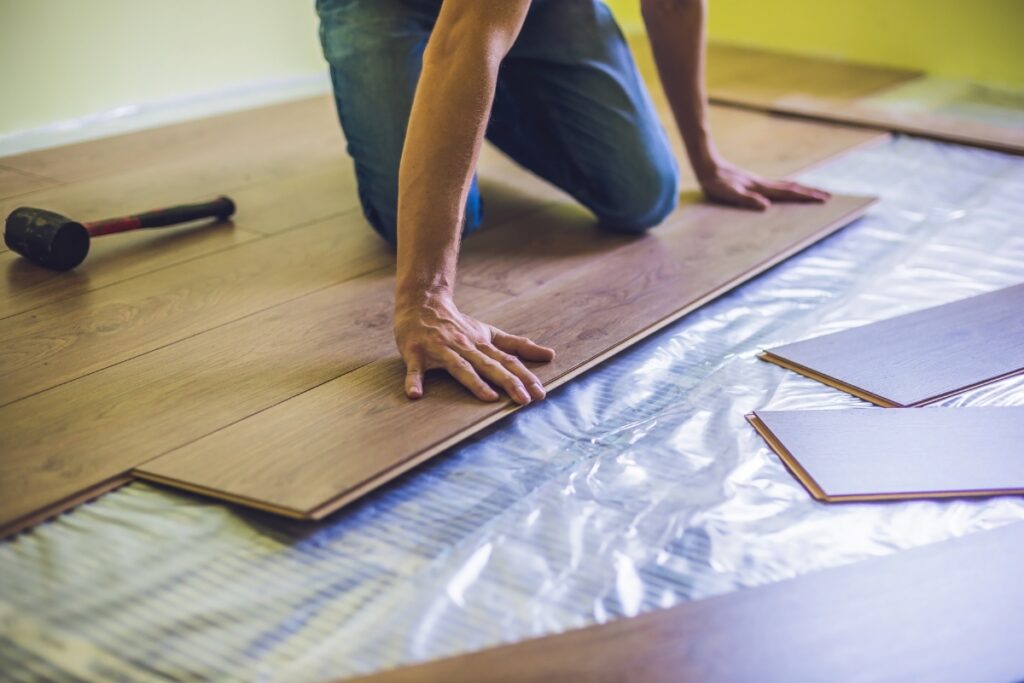
Installing flooring on your own can be a rewarding and cost-effective project. However, it’s important to weigh the pros and cons before deciding to take on this task. Here are some advantages and disadvantages of DIY flooring installation:
- Cost Savings: One of the biggest advantages of DIY flooring installation is the potential cost savings. By taking the DIY route, you can avoid labor charges and potentially save a significant amount of money.
- Flexibility: When you choose to install the flooring yourself, you have the freedom to work at your own pace and according to your own schedule. This flexibility can be a major advantage, especially if you have a busy lifestyle.
- Personal Satisfaction: Successfully completing a DIY flooring project can bring a great sense of personal satisfaction. It allows you to showcase your skills and creativity while transforming your living space.
- Learning Opportunity: DIY flooring installation provides an excellent opportunity to learn new skills. Whether it’s laying hardwood, installing tiles, applying stain, or working with laminates, you can acquire valuable knowledge that can be used for future projects. Cons:
- Time-Consuming: DIY flooring installation requires a significant amount of time and effort. From preparing the subfloor to cutting and fitting the materials, it can be a time-consuming process, especially if you’re not experienced.
- Skill and Expertise: Installing flooring properly requires skill and expertise. If you don’t have prior experience or knowledge of the specific flooring material, there is a higher risk of making mistakes that could lead to costly repairs or replacements.
- Tools and Equipment: DIY flooring installation often requires specialized tools and equipment. If you don’t already own these tools, you may need to purchase or rent them, adding to the overall project cost.
- Lack of Warranty: Hiring a professional flooring installer often comes with the added benefit of warranties and guarantees. If you encounter any issues with your DIY installation, you may not have the same level of support or recourse.
Budget Breakdown: DIY Flooring Installation Costs
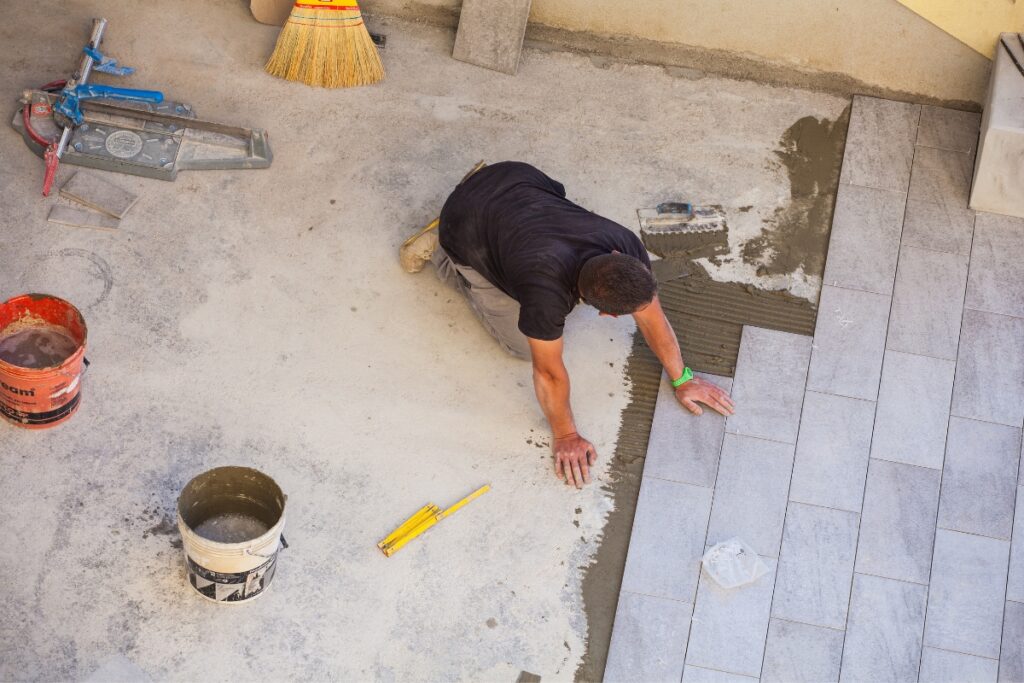
When it comes to installing new flooring in your home, one of the first decisions you’ll have to make is whether to go the DIY route or hire a professional. Budget considerations play a significant role in this decision-making process, as the costs can vary significantly depending on the approach you choose. In this blog post, we will break down the costs associated with DIY flooring installation to help you determine if it fits your budget.
Before diving into the specifics, it’s important to note that DIY flooring installation requires a certain level of skill and expertise. If you’re confident in your abilities and have experience with similar projects, you can save a significant amount of money by taking on the installation yourself. However, if you’re unsure about your skills or the scope of the project is large and complex, it may be wise to hire a professional to ensure a high-quality and efficient installation.
Now let’s talk about the budget breakdown for DIY flooring installation. The main cost associated with this approach is the cost of materials. Depending on the type of flooring you choose – be it hardwood, laminate, vinyl, or tile – prices can vary significantly. It’s essential to research different options and determine the cost per square foot or per box to get a better understanding of the overall expenses.
Additionally, you’ll need to factor in the cost of any additional materials required for installation, such as underlayment, adhesive, and transition strips. These costs can add up, so make sure to account for them in your budget.
Aside from materials, you’ll also need to invest in the necessary tools for the job. Renting or purchasing tools like a power saw, knee pads, and a trowel may be necessary, depending on the type of flooring you’re installing. Consider these costs when determining if DIY installation fits within your budget.
Another crucial aspect of DIY flooring installation is the time and effort required. While you may be saving money on labor costs, you need to consider the value of your time and whether you have the availability to dedicate to the project. DIY installation can be time-consuming, especially if you’re not experienced in the process. Factor in the potential opportunity cost when deciding if it’s a feasible option for you.
Lastly, one often overlooked cost of DIY flooring installation is the risk of mistakes. If you’re not familiar with the process, it’s possible to make errors that can lead to costly repairs down the line. Take this into account when weighing the pros and cons of DIY versus professional installation.
Assessing Your Skill Level: Are You Up for the Challenge?
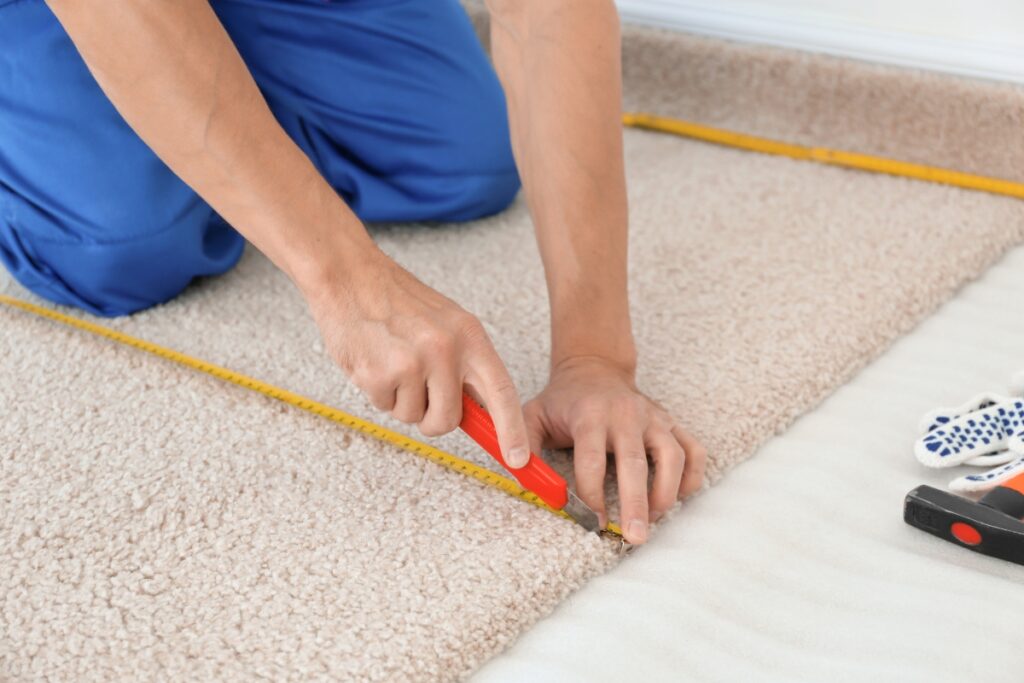
Before embarking on a DIY flooring installation project, it’s crucial to assess your skill level honestly. While some types of flooring may be more beginner-friendly than others, all installations require a certain level of expertise and attention to detail.
If you’re an experienced DIY enthusiast who has successfully completed similar projects in the past, you may feel confident in taking on a flooring installation yourself. However, if this is your first time attempting such a task or if you lack experience with construction projects, it may be wise to reconsider.
Keep in mind that mistakes during the installation process can be costly to fix. Improperly installed flooring can lead to issues such as uneven surfaces, gaps, or even damage to the subfloor that no amount of maintenance and repair can undo. If you’re unsure about your abilities or if you’re working with a particularly challenging flooring material, it’s best to consult with a professional.
Benefits of Hiring a Professional Flooring Installer
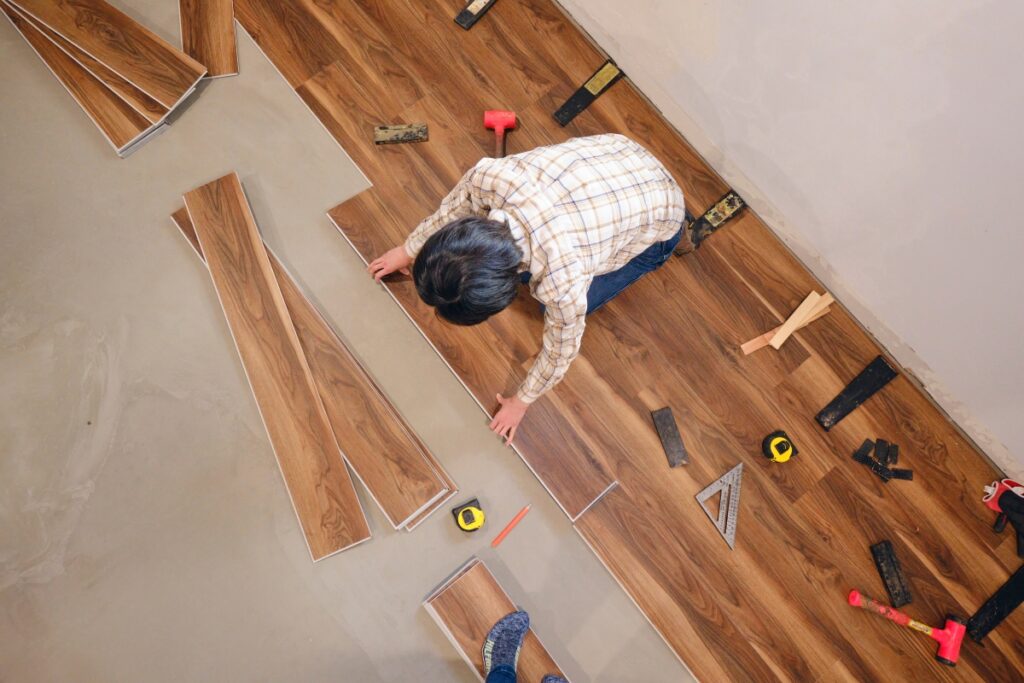
When it comes to installing new flooring in your home or office, you may be tempted to take the DIY route to save money. While DIY projects can be fun and rewarding, when it comes to flooring installation, hiring a professional installer offers numerous benefits that outweigh the cost.
Here are some key advantages of hiring a professional flooring installer:
- Expertise and Experience: Professional flooring installers have the necessary expertise and experience to handle various types of flooring materials such as hardwood, laminate, vinyl, or tile. They are familiar with the specific techniques and tools required for each type of flooring, ensuring a high-quality installation that will stand the test of time.
- Time and Efficiency: Installing flooring can be a time-consuming task, especially if you lack the necessary skills and experience. By hiring a professional installer, you can save yourself the hassle and frustration of learning a new trade and focus on other important aspects of your life. Professionals work efficiently, completing the installation quickly and minimizing any disruption to your daily routine.
- Quality Workmanship: Professional flooring installers take pride in their work and strive to deliver exceptional results. They have the knowledge and skills to properly prepare the subfloor, ensuring the flooring materials are installed correctly and evenly. With their attention to detail, you can expect a flawless finish that enhances the overall aesthetic appeal of your space.
- Cost-Effective: While hiring a professional flooring installer may seem expensive upfront, it can actually save you money in the long run. Professionals have access to wholesale prices on flooring materials, which can significantly reduce your overall costs. Additionally, their expertise ensures that the installation is done correctly, preventing any costly mistakes or damage that could arise from DIY installation attempts.
- Warranty and Insurance: Reputable professional flooring installers often provide warranties for their workmanship and materials. This gives you peace of mind knowing that if any issues arise after the installation, you can rely on the installer to rectify them at no additional cost. Furthermore, professionals are insured, protecting you from any liability in case of accidents or injuries that may occur during the installation process.
- Enhanced Value and Resale Potential: A professionally installed floor can greatly enhance the value and resale potential of your property. Potential buyers appreciate the craftsmanship and attention to detail that professionals bring to the table. By investing in a professional installation, you can make your property more attractive to potential buyers and potentially command a higher selling price.
Calculating the Costs of Professional Flooring Installation
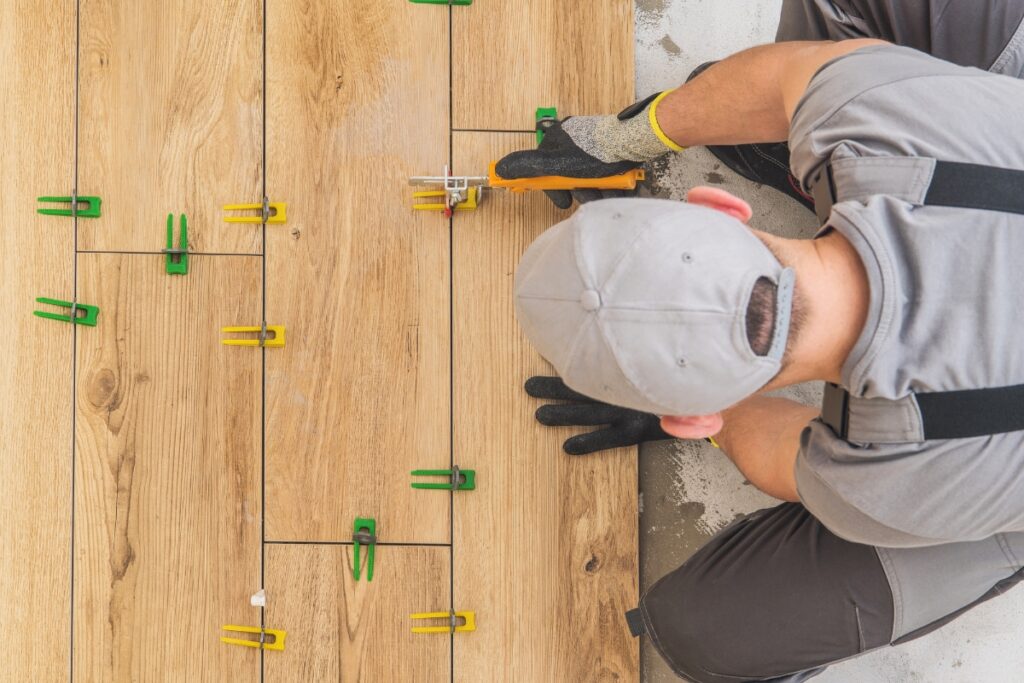
When it comes to flooring installation, one of the major factors to consider is the cost involved. Many homeowners weigh the options of DIY installation versus professional installation, and understandably so. While DIY installation may seem like a cost-effective solution, it’s important to calculate the true costs involved before making a decision.
First and foremost, let’s talk about the costs associated with professional flooring installation. Hiring a professional ensures that the job will be done correctly and efficiently. They have the necessary expertise and tools to handle the installation process, which can save you time and effort. However, it’s essential to understand that professional installation comes at a price.
The cost of professional flooring installation varies depending on several factors. One of the primary factors is the type of flooring you choose. Different materials, such as hardwood, laminate, or tile, have different installation costs associated with them. Additionally, the size of the area to be covered plays a role in determining the overall cost. Larger spaces typically require more materials and labor, which can increase the installation cost.
Another consideration when calculating the costs of professional installation is the additional expenses that may arise. These can include the removal of existing flooring, subfloor preparation, and disposal of waste materials. These hidden costs can quickly add up, so it’s crucial to factor them into your budget.
On the other hand, DIY installation may seem like a more cost-effective option at first glance. It allows you to save on labor costs since you’ll be doing the installation yourself. However, it’s essential to consider the potential pitfalls of taking on such a project without professional help.
Firstly, DIY installation requires a certain level of skill and experience. If you’re not familiar with the installation process or lack the necessary tools, you may end up making mistakes that can be costly to fix. Additionally, improper installation can lead to long-term issues such as uneven floors, gaps, or premature wear and tear.
Even if you’re confident in your abilities, DIY installation still incurs costs. You’ll need to purchase or rent the necessary tools and equipment, as well as the flooring materials themselves. These expenses can quickly add up, especially if you’re working with high-end materials.
Ultimately, the decision between DIY and professional flooring installation comes down to your budget and comfort level. If you have the necessary skills, experience, and time to dedicate to the project, DIY installation may be a viable option. However, if you’re looking for a hassle-free, efficient installation process and are willing to invest in professional expertise, hiring a professional is the way to go.
Factors to Consider When Hiring a Professional Installer
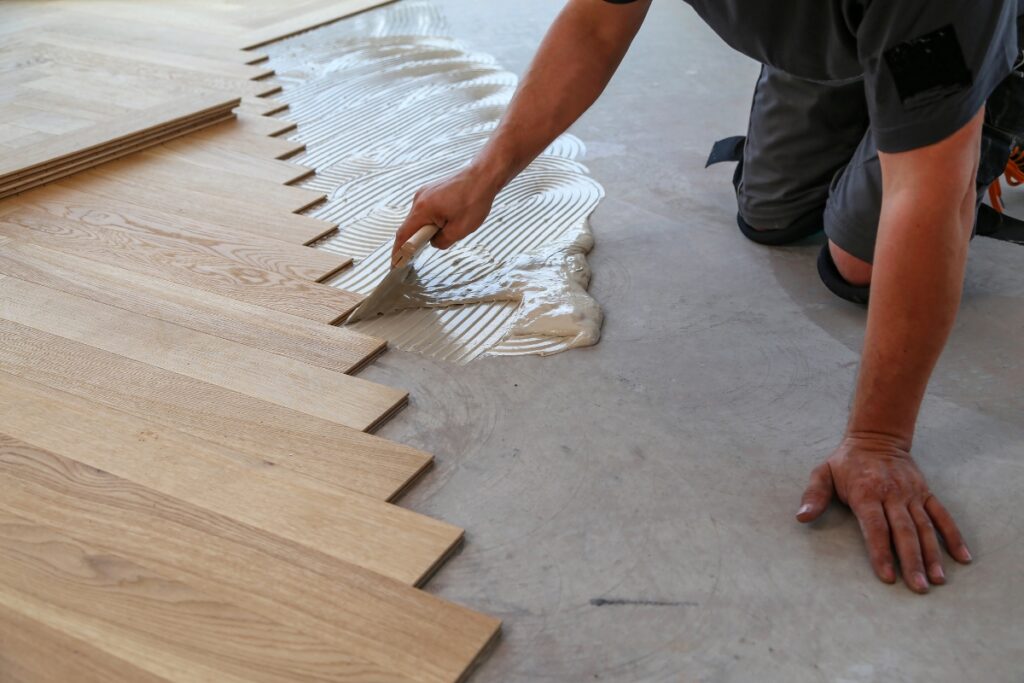
When it comes to flooring installation, there are several factors to consider before deciding whether to go the DIY route or hire a professional installer. While the allure of saving money by doing it yourself may be tempting, there are certain situations where hiring a professional is the better option. Here are some key factors to consider when making your decision:
- Expertise and Skill: Professional installers have years of experience and expertise in their field. They have a deep understanding of different flooring materials, installation techniques, and tools required for the job. This ensures that the installation is done correctly and efficiently, resulting in a high-quality finish. DIY installations, on the other hand, may lack the finesse and attention to detail that professionals can provide.
- Time and Effort: Installing flooring can be a time-consuming and physically demanding task. DIY installations require careful planning, measuring, cutting, and laying of the flooring material. This process can be overwhelming, especially if you have a large area to cover or complex patterns to follow. Hiring a professional installer frees up your time and allows you to focus on other priorities while they take care of the installation process.
- Tools and Equipment: Professional installers are equipped with specialized tools and equipment that may not be readily available to homeowners. These tools are designed to make the installation process smoother and more efficient. If you choose to DIY, you may need to invest in or rent tools, adding to the overall cost of the project. Additionally, using unfamiliar tools can be risky and may result in mistakes or accidents.
- Warranty and Guarantees: The majority of skilled installers provide warranties or guarantees for their craftsmanship. This ensures that you can have a sense of reassurance, as any problems that may arise after the installation will be rectified at no extra expense to you. Conversely, DIY installations usually lack such assurances, leaving you solely responsible for addressing any errors or complications that may occur.
- Budget Considerations: While hiring a professional installer may seem more expensive upfront, it is important to weigh the long-term costs and benefits. DIY installations may seem cost-effective initially, but if you make mistakes or the quality of the installation is compromised, you may end up spending more money on repairs or replacements in the future. Additionally, professional installers often have access to discounted materials and can help you make informed decisions about the best flooring options for your budget.
Comparing DIY vs Professional Installation: Which Is Right for You?
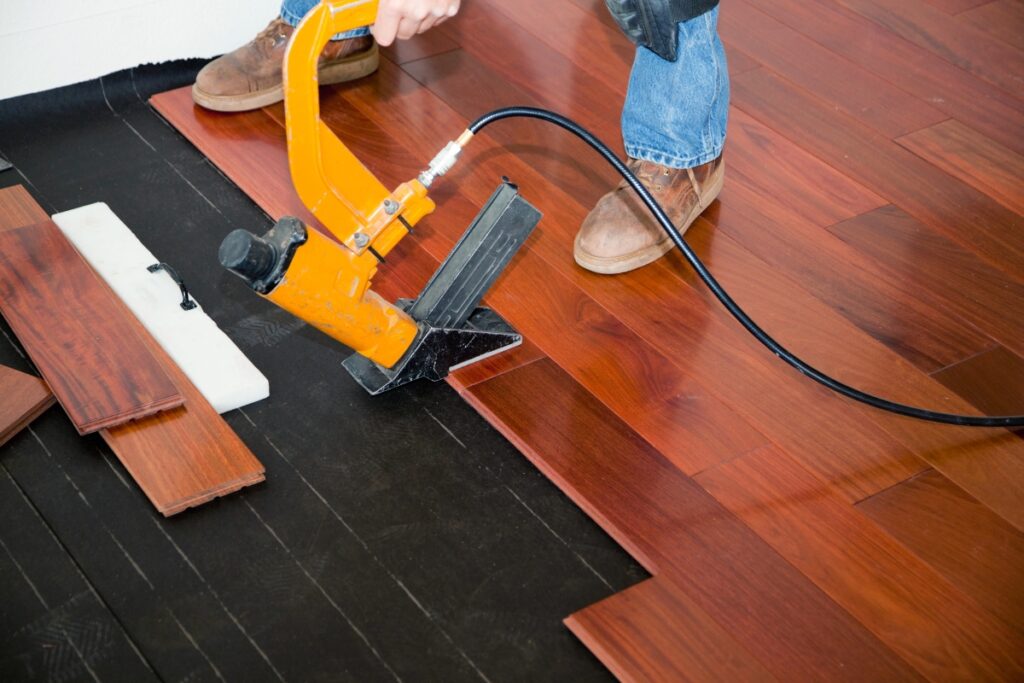
When it comes to installing flooring in your home, you have two options: DIY or professional installation. Both methods have their pros and cons, and it ultimately depends on your preferences, budget, and skill level. In this article, we will compare the two approaches – DIY and professional installation – to help you determine which one is right for you.
DIY (Do-It-Yourself) installation appeals to many homeowners who want to save money and take pride in completing home improvement projects on their own. One major advantage of DIY flooring installation is cost savings. By eliminating labor costs, you can significantly reduce the overall expense of your flooring project. Additionally, DIY installation allows you to work at your own pace and on your own schedule.
However, it’s essential to consider the challenges that come with DIY installation. First and foremost, you need to have a certain level of skill and experience to ensure a successful outcome. If you have never installed flooring before, you may find the process overwhelming and time-consuming. It requires precision, attention to detail, and the use of specialized tools. Not to mention, any mistakes you make can be costly to fix.
On the other hand, professional installation offers several advantages that DIY installation may not provide. Hiring professional installers means you can rely on their expertise and experience to ensure a high-quality and efficient installation. They have the necessary skills, knowledge, and tools to handle any flooring material and address any challenges that may arise during the installation process.
Professional installers can also save you time and effort. They are accustomed to working on flooring projects and can complete the job much faster than an inexperienced homeowner. In addition, professional installation often comes with warranties, protecting you from any defects or installation issues.
Of course, professional installation comes at a cost. Labor fees can significantly increase the overall expense of your flooring project. Additionally, you may need to work around their schedule, which may not always align with yours.
Conclusion: Making the Best Choice for Your Budget and Needs
In conclusion, choosing between DIY flooring installation or hiring a professional ultimately comes down to your individual circumstances. Remember, the goal is to achieve beautiful and durable floors that enhance your home’s aesthetics and functionality. For the best balance, find a professional who is willing to work with your budget.
Diaz Hardwood Floors stands as your trusted partner in delivering expert craftsmanship while catering to your budget needs. Choose Diaz Hardwood Floors for a seamless installation that combines affordability with professional precision.
Contact us at 404-791-0444 to discuss your flooring project and discover the perfect balance between cost-effectiveness and exceptional results.

